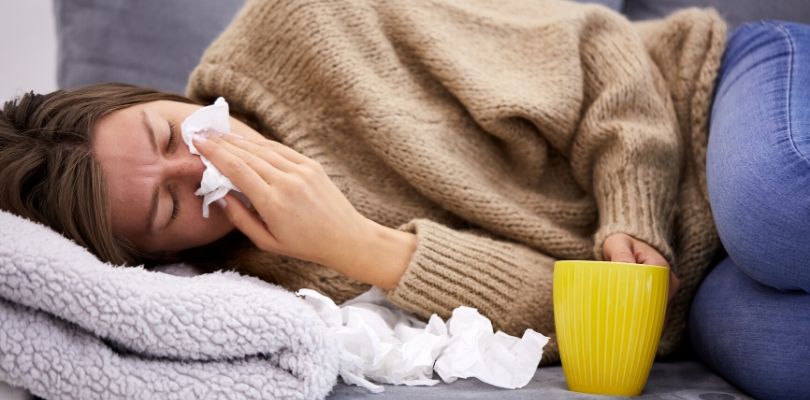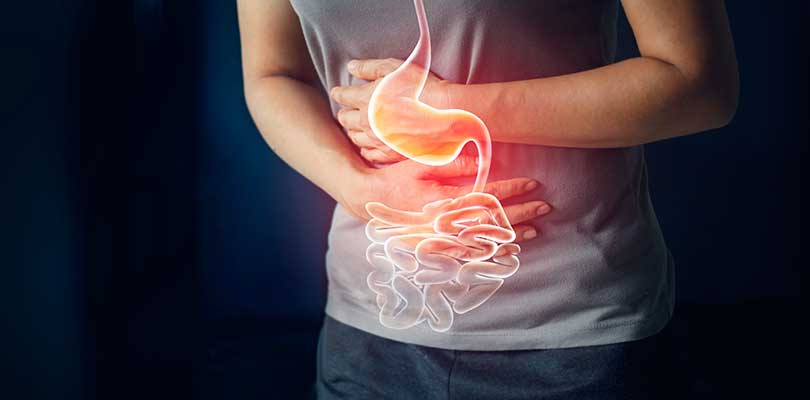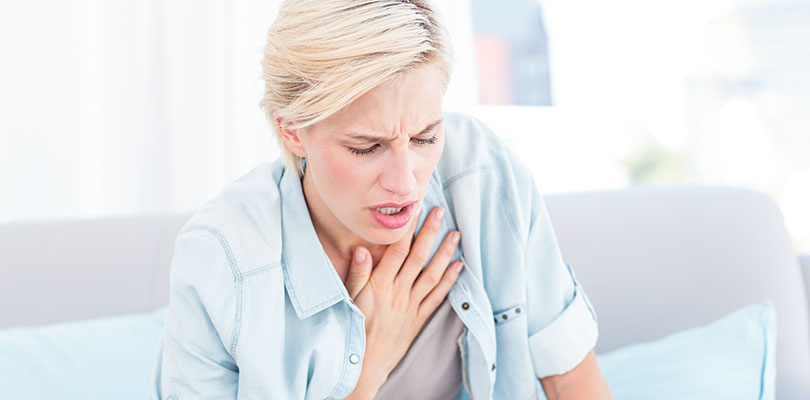Signs and Symptoms of Pneumonia
Anyone can get pneumonia, regardless of age, gender, or another factor. Your body works hard to keep you healthy, but you may expose yourself to germs that cause pneumonia every single day. It is good to know the signs and symptoms of pneumonia, so you can seek early treatment and get the illness under control.
What Is Pneumonia?
Pneumonia is an infection that inflames the alveoli (air sacs) in one or both of your lungs. The infection may fill the air sacs with fluid or pus, making breathing difficult, causing several other health issues. The severity of pneumonia ranges from mild to life threatening; the condition can be dangerous if it is contracted by certain groups of people. Infants, young children, the elderly and people with health issues and weakened immune systems need to seek medical care immediately if pneumonia is suspected.
Causes of Pneumonia
Germs from bacteria, viruses and fungi can cause pneumonia. The most common organisms that cause pneumonia are bacteria and viruses in the air. Your body’s immune system usually does a great job of protecting you from airborne germs, but sometimes germs can sneak past your body’s defenses.
Types of Pneumonia
There are four common types of pneumonia. Here is their explanation, causes and symptoms.
Community-Acquired Pneumonia
The most common type of pneumonia is caused by factors you come across in everyday life. Community-acquired pneumonia is caused by:
- Bacteria. Bacterial pneumonia tends to be more serious than other types of pneumonia and requires medical intervention.
- Bacteria-like organisms. Bacterial-like organisms create milder symptoms than other types of pneumonia. With this type, you are still able to perform many of your daily activities as it is not severe enough to require bed rest.
- Fungi. Pneumonia caused by fungi is found more often in those with chronic health problems or weakened immune systems.
- Viruses. Some viruses that cause colds or the flu can also cause pneumonia and symptoms will mimic those of influenza. Viral pneumonia usually mild but can become very serious in certain cases.
Hospital-Acquired Pneumonia
There’s a small risk of contracting pneumonia when you stay in the hospital for treatment of another illness. Bacteria acquired in a hospital setting may be more resistant to antibiotics, making this type of pneumonia more of a concern. Additionally, those in the hospital are usually already sick so their immune systems may be weakened.
Health-Acquired Pneumonia
Similar to hospital-acquired pneumonia, health-acquired pneumonia occurs in long-term care facilities, outpatient clinics or other treatment centers. The bacteria found in these facilities may also resist antibiotics.
Aspiration Pneumonia
Aspiration pneumonia may occur when you inhale food, drinks, vomit, or saliva into your lungs. If something disturbs your normal gag reflex, like an issue swallowing properly, you may put yourself at risk for aspiration pneumonia.
Symptoms of Pneumonia
The spectrum of symptoms varies from person to person and depends on factors like your age, health and cause of your pneumonia. Symptoms may be barely noticeable and range to severe.
Common symptoms of pneumonia include:
- Chest discomfort
- Shortness of breath or rapid, shallow breathing
- Coughing which may produce green, yellow and sometimes bloody mucus
- Fatigue and low energy
- Fever
- Rapid heartbeat
- Sweating and shaking chills
- Lower than normal body temperature
- Nausea and vomiting
- Diarrhea
- Loss of appetite
- Headache
While prescriptions online can be convenient for time and mobility, there are some safety concerns to consider. Learn more here.
Less Common Symptoms of Pneumonia
While the list above outlines more common pneumonia symptoms, there are some other less common indicators, including:
- Coughing up blood
- Wheezing
- Joint and muscle pain
- Changes in mental awareness for those over 65
- Bluish hue to the lips and nails
Complications of Pneumonia
In serious cases of pneumonia, there are some complications to be aware of, especially for those in high risk groups:
- Sepsis. The infection gets into the blood and may lead to organ failure.
- Acute respiratory distress syndrome (ARDS). This is a severe form of respiratory failure.
- Respiratory failure. This is when your blood does not have enough oxygen or has too much carbon dioxide.
- Lung abscesses. These occur when pockets of pus form inside or around the lung.
Treatment Options for Pneumonia
How you treat your pneumonia will depend on your diagnosis. Based on the type of pneumonia and personal factors, recovery can happen within a week or take longer than a month. There are some treatments available. The ways you can help it at home are:
- Controlling fever with aspirin (adults only), nonsteroidal anti-inflammatory drugs (like ibuprofen), or acetaminophen
- Drinking plenty of fluids to loosen phlegm
- Embracing your cough; it helps your body get rid of an infection. See your doctor before taking any cough medicine.
- Taking hot showers or baths and use a humidifier to open airways
- Taking prescription antiviral medication, as typical antibiotics do not work against viruses
- Getting lots of sleep
Many people will continue to feel tired for about a month, so listen to your body and rest when needed.
When to See a Doctor
See a doctor if your symptoms include difficulty breathing, chest pain, persistent fever, or persistent cough. If you are hospitalized because of pneumonia, hospital treatment may include intravenous fluids and antibiotics, oxygen therapy and possibly other breathing treatments.
High risk groups should see a doctor as soon as they exhibit symptoms of pneumonia. High risk groups include:
- Those who are older than 65
- Those who are younger than two
- Those with an underlying health condition
- Those receiving treatments that suppress the immune system, such as chemotherapy
How to Prevent Pneumonia
There are some simple things you can do to avoid contracting pneumonia:
- Wash your hands properly and use an alcohol-based sanitizer
- Get a vaccination
- Avoid smoke
- Get enough sleep
- Exercise
- Eat healthy foods to keep your immune system strong
Taking care of yourself and paying attention to any symptoms will help you discover your pneumonia early. If you let yourself become too run down with stress and lack of proper sleep, you are not giving your immune system the ability to protect you against pneumonia or other health conditions.







